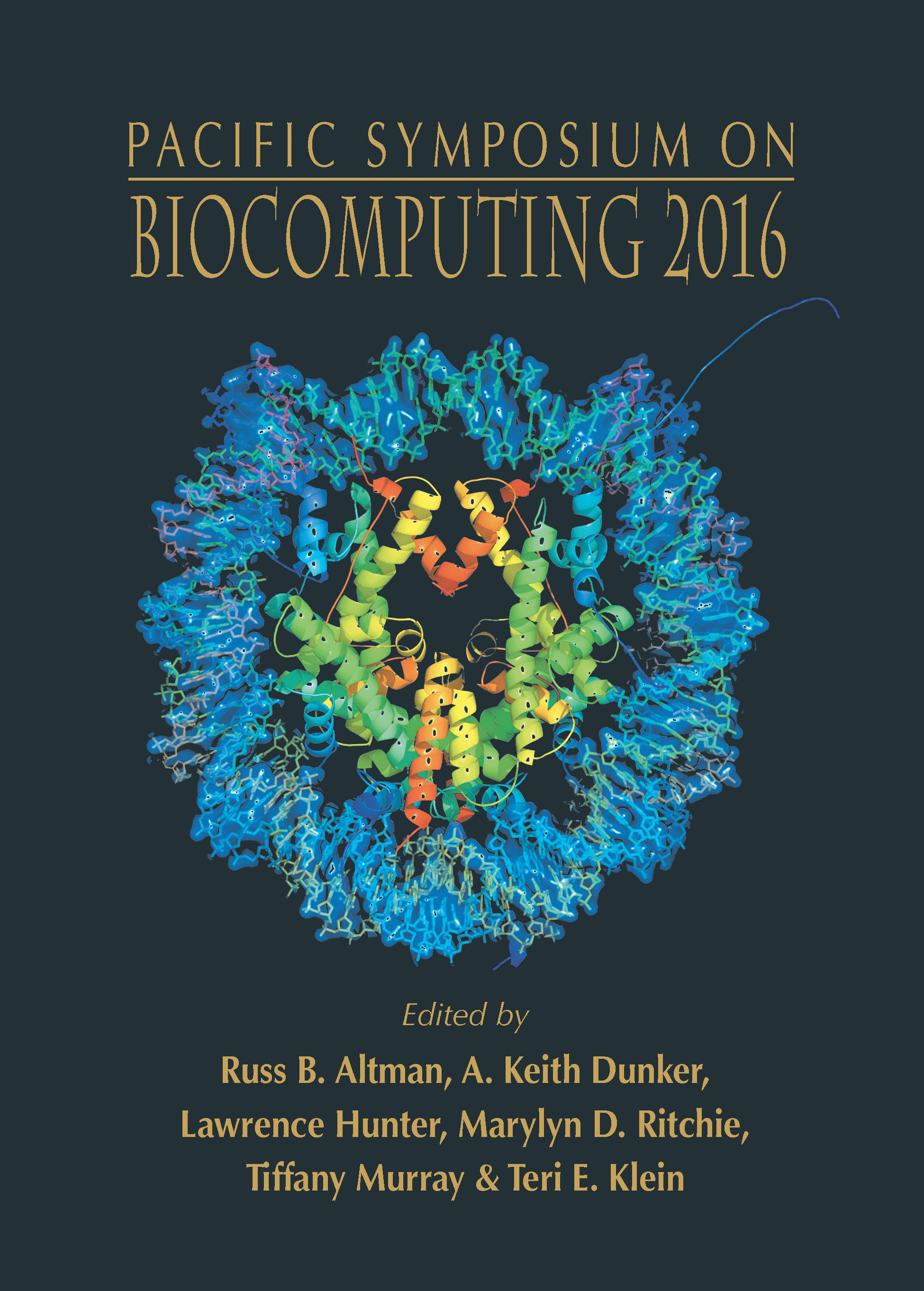
Shefali S. Verma1, Alex T. Frase1, Anurag Verma1, Sarah A. Pendergrass2, Shaun Mahony1, David W. Haas3, Marylyn D. Ritchie1,2
1Center for System Genomics, The Pennsylvania State University
2Biomedical and Translational Informatics, Geisinger Health System
3Vanderbilt Health, One Hundred Oaks
Pacific Symposium on Biocomputing 21:57-68(2016)
© 2016 World Scientific
Open Access chapter published by World Scientific Publishing Company and distributed under the terms of the Creative Commons Attribution (CC BY) 4.0 License.
Association studies have shown and continue to show a substantial amount of success in identifying links between multiple single nucleotide polymorphisms (SNPs) and phenotypes. These studies are also believed to provide insights toward identification of new drug targets and therapies. Albeit of all the success, challenges still remain for applying and prioritizing these associations based on available biological knowledge. Along with single variant association analysis, genetic interactions also play an important role in uncovering the etiology and progression of complex traits. For gene- gene interaction analysis, selection of the variants to test for associations still poses a challenge in identifying epistatic interactions among the large list of variants available in high-throughput, genome-wide datasets. Therefore in this study, we propose a pipeline to identify interactions among genetic variants that are associated with multiple phenotypes by prioritizing previously published results from main effect association analysis (genome-wide and phenome-wide association analysis) based on a-priori biological knowledge in AIDS Clinical Trials Group (ACTG) data. We approached the prioritization and filtration of variants by using the results of a previously published single variant PheWAS and then utilizing biological information from the Roadmap Epigenome project. We removed variants in low functional activity regions based on chromatin states annotation and then conducted an exhaustive pairwise interaction search using linear regression analysis. We performed this analysis in two independent pre-treatment clinical trial datasets from ACTG to allow for both discovery and replication. Using a regression framework, we observed 50,798 associations that replicate at p-value 0.01 for 26 phenotypes, among which 2,176 associations for 212 unique SNPs for fasting blood glucose phenotype reach Bonferroni significance and an additional 9,970 interactions for high-density lipoprotein (HDL) phenotype and fasting blood glucose (total of 12,146 associations) reach FDR significance. We conclude that this method of prioritizing variants to look for epistatic interactions can be used extensively for generating hypotheses for genome- wide and phenome-wide interaction analyses. This original Phenome-wide Interaction study (PheWIS) can be applied further to patients enrolled in randomized clinical trials to establish the relationship between patient’s response to a particular drug therapy and non-linear combination of variants that might be affecting the outcome.